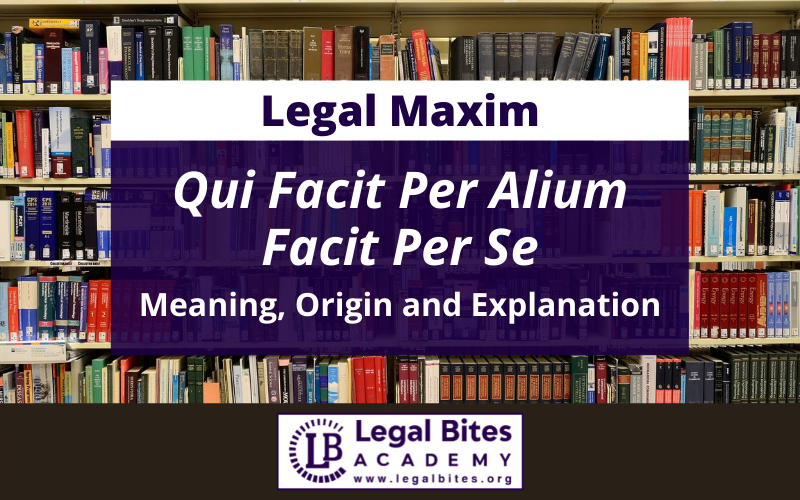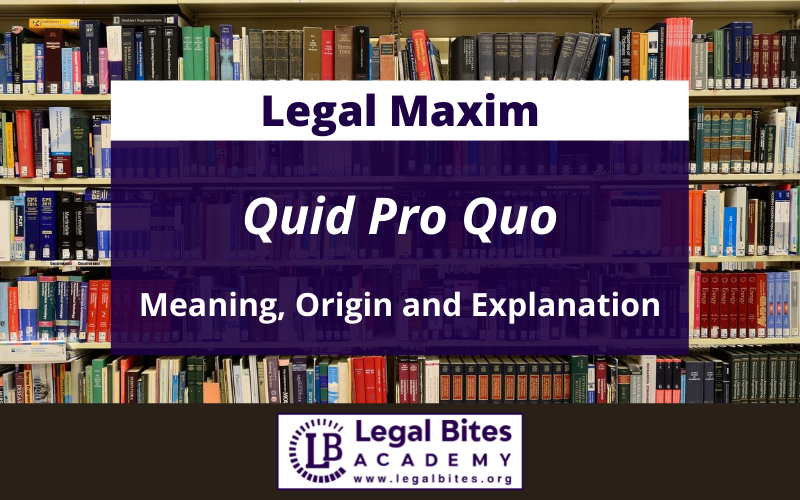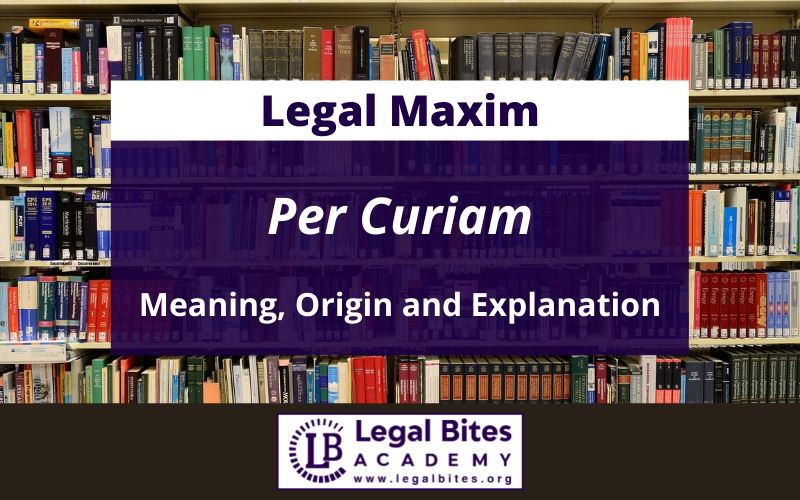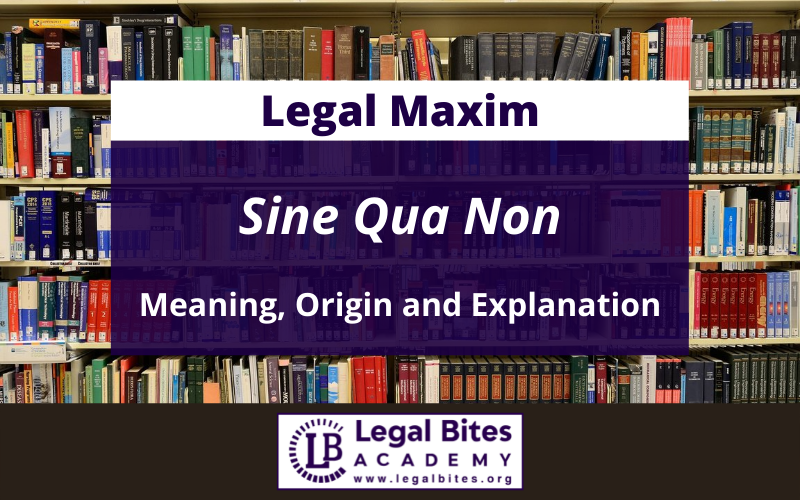Inter Alia: Meaning, Origin and Explanation
This article titled ‘Inter Alia: Meaning, Origin and Explanation’ is written by Sahajpreet Bhusari and discusses the concept of Inter Alia. I. Meaning and Origin Inter Alia is a legal maxim of Latin origin. In Latin, the maxim literally means ‘among other things’.[1] II. Explanation The maxim above is often used in court pleadings and legal documents and to… Read More »
;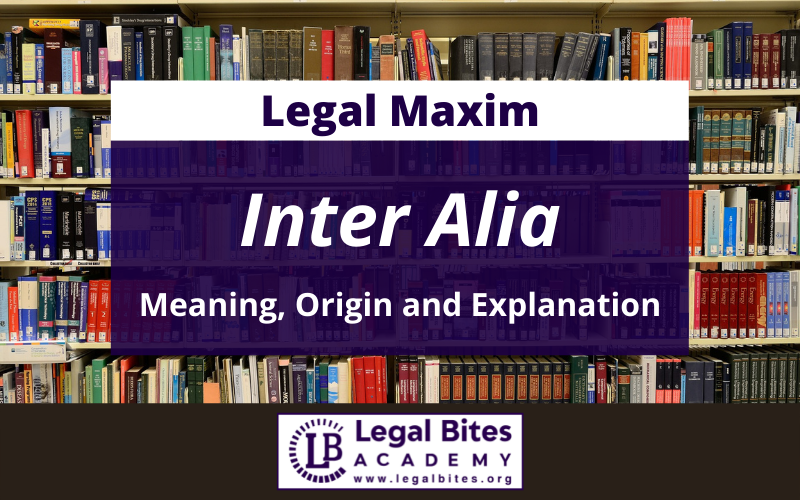
This article titled ‘Inter Alia: Meaning, Origin and Explanation’ is written by Sahajpreet Bhusari and discusses the concept of Inter Alia. I. Meaning and Origin Inter Alia is a legal maxim of Latin origin. In Latin, the maxim literally means ‘among other things’.[1] II. Explanation The maxim above is often used in court pleadings and legal documents and to show one example out of many possibilities. In general, the expression is used to say that there are other things...
This article titled ‘Inter Alia: Meaning, Origin and Explanation’ is written by Sahajpreet Bhusari and discusses the concept of Inter Alia.
I. Meaning and Origin
Inter Alia is a legal maxim of Latin origin. In Latin, the maxim literally means ‘among other things’.[1]
II. Explanation
The maxim above is often used in court pleadings and legal documents and to show one example out of many possibilities. In general, the expression is used to say that there are other things involved besides those mentioned.
It may be used, when referring to a court decision, to indicate that there have been other court decisions, but only a specific part is cited. It is also only used to quote part of a law or regulation, or part of a judge’s opinion, or a document or text.
III. Illustrations
- “The judge said, among other things (inter alia), that the original contract did not appear to be valid.” This would indicate that the apparent voidability of the contract is only a question among others raised by the judge.
- A sued B and C in the court of law, alleging, among other things, a breach of contract.
IV. Case Laws
The Supreme Court in the case of Liverpool & London S.P. v. M.V. Sea Success and Anr.[2] used the above maxim in its ruling stating that one of the factors involved in reaching a conclusion as to whether something is within the term ‘necessary’ will depend, among other things (inter alia), on whether the prudent owner ensures that a vessel can well perform the functions for which it has been chartered.
The maxim was again used by the court in the case of Sukhdev Singh & Ors v. Bagatam Sardar[3] Singh. The court stated that the regulations provide for committee meetings, the procedure to be followed for the management of cases at these meetings; the keeping of minutes of the Committee’s meetings and the transmission of copies of such meetings to the central government, among other things (inter alia).
References
[1] Merriam Webster, Available Here.
[2] Appeal (civil) 5665 of 2002.
[3] 1975 AIR 1331.


